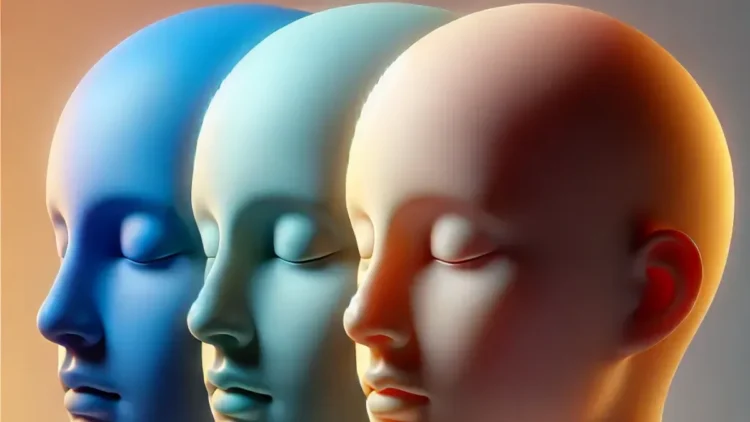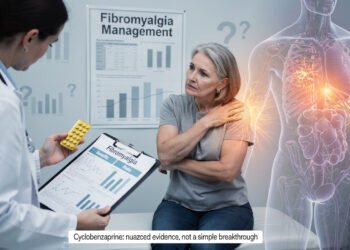Rare Diseases: Why Diagnosis Takes a Decade & The Science Changing It
Imagine Waiting 10 Years for a Diagnosis
Waking up every day with unexplained symptoms, chronic pain, relentless fatigue, brain fog. You visit doctor after doctor, but no one has answers. Some dismiss you; others prescribe medications that don’t help, and you start to wonder: Will I ever find out what’s wrong?
For 1 in 10 people, this isn’t just frustration it’s life with a rare disease. With over 7,000 rare diseases identified, millions of people worldwide are trapped in medical limbo, searching for a diagnosis that can take five to ten years.
So why does it take so long? And how is science finally catching up to help? Let’s dive in.
What Is a Rare Disease?
A disease is classified as rare if it affects fewer than 1 in 2,000 people. But because there are so many rare diseases, they collectively impact millions of people worldwide.
Some of the more well-known rare diseases include:
-
Cystic Fibrosis – Causes thick mucus buildup in the lungs and digestive system.
-
Ehlers-Danlos Syndrome (EDS) – Leads to hypermobile joints and fragile skin.
-
Huntington’s Disease – A genetic disorder that progressively affects movement and cognition.
-
Progeria – Causes rapid aging in children.
-
Wilson’s Disease – Prevents the body from processing copper properly, leading to organ damage.
And then there are the rare diseases that sound almost science-fictional:
-
Stiff-Person Syndrome – Causes severe muscle spasms and stiffness, making movement incredibly difficult.
-
Fibrodysplasia Ossificans Progressiva (FOP) – Where soft tissues slowly turn into bone, locking the body in place.
-
Alkaptonuria (Black Urine Disease) – Causes urine to turn black and leads to severe joint problems.
-
Paraneoplastic Pemphigus – A rare, painful skin blistering disorder that can signal undiagnosed cancer.
Despite affecting so many lives, research into rare diseases is often underfunded and overlooked. The result? A painfully slow diagnostic process that leaves patients suffering for years.
Why Does It Take So Long to Get Diagnosed?
The average time for a rare disease diagnosis is 5 to 10 years. That’s a decade of medical visits, misdiagnoses, and unnecessary treatments. But why?
-
Doctors Have Never Seen It Before
Most physicians are trained to recognise common illnesses not rare ones. If a doctor has never seen a certain disease before, they may not even consider it as a possibility.
-
Symptoms Mimic Other Conditions
Many rare diseases share symptoms with conditions like autoimmune disorders, chronic pain syndromes or even mental health issues. This leads to frequent misdiagnoses, which delay the right treatment.
-
Some Diseases Don’t Have a Test
For many rare diseases, there is no definitive test. Diagnosis relies on a frustrating process of elimination, where doctors rule out more common conditions first one at a time. This can take years.
-
Patients Are Dismissed
Many people with rare diseases report being told their symptoms are:
Just stressIn your headNot serious enough to investigate further
This dismissal often forces patients to fight alone for answers, pushing for second (or third) opinions.
But here’s the good news: science is finally catching up.
How Science is Changing the Game
For decades, rare diseases were ignored due to their complexity and lack of funding. But now, new medical advancements are revolutionizing diagnosis and treatment:
🔬 Genetic Testing & Whole Genome Sequencing
Many rare diseases are genetic, meaning they stem from a mutation in a single gene. With the rise of genetic testing, doctors can now pinpoint these mutations leading to much faster and more accurate diagnoses.
🧬 Gene Therapy & CRISPR
For some genetic diseases, scientists are moving beyond symptom management and using gene-editing tools like CRISPR to fix the problem at its source. This technology could one day provide actual cures for certain rare diseases.
🌍 Online Patient Communities
When doctors don’t have answers, patients are finding each other. Facebook groups, Reddit forums, and even TikTok have become lifelines for people struggling with undiagnosed conditions.
In some cases, online patient groups have led to breakthroughs, connecting people with similar symptoms and guiding them toward specialists.
One real-life example? A woman struggling for years with Stiff-Person Syndrome found others with the exact same symptoms online leading her to a doctor who finally confirmed her diagnosis.
What Can You Do If You’re Searching for a Diagnosis?
If you or someone you love is dealing with mystery symptoms, don’t give up. Here’s what you can do:
Document Everything – Keep a detailed symptom journal, noting any patterns or triggers.
Push for Genetic Testing – If standard tests come back normal, ask about whole genome sequencing.
Get Multiple Opinions – If one doctor dismisses you, find another. Keep pushing until you get answers.
Join Online Communities – Connect with others who may have similar experiences.
Advocate for Yourself – Trust your instincts. If something feels wrong, don’t let the system ignore you.
Final Thoughts
Rare diseases may be uncommon, but the struggle to get diagnosed is all too familiar. For the millions of people affected, awareness, research and medical advancements are more important than ever.
The more we talk about rare diseases, the more funding, research and breakthroughs will follow.
🎙️ Want to hear more? Listen to the full MedHeads Podcast episode on rare diseases, where we break down the challenges, the science, and the future of diagnosis.


























